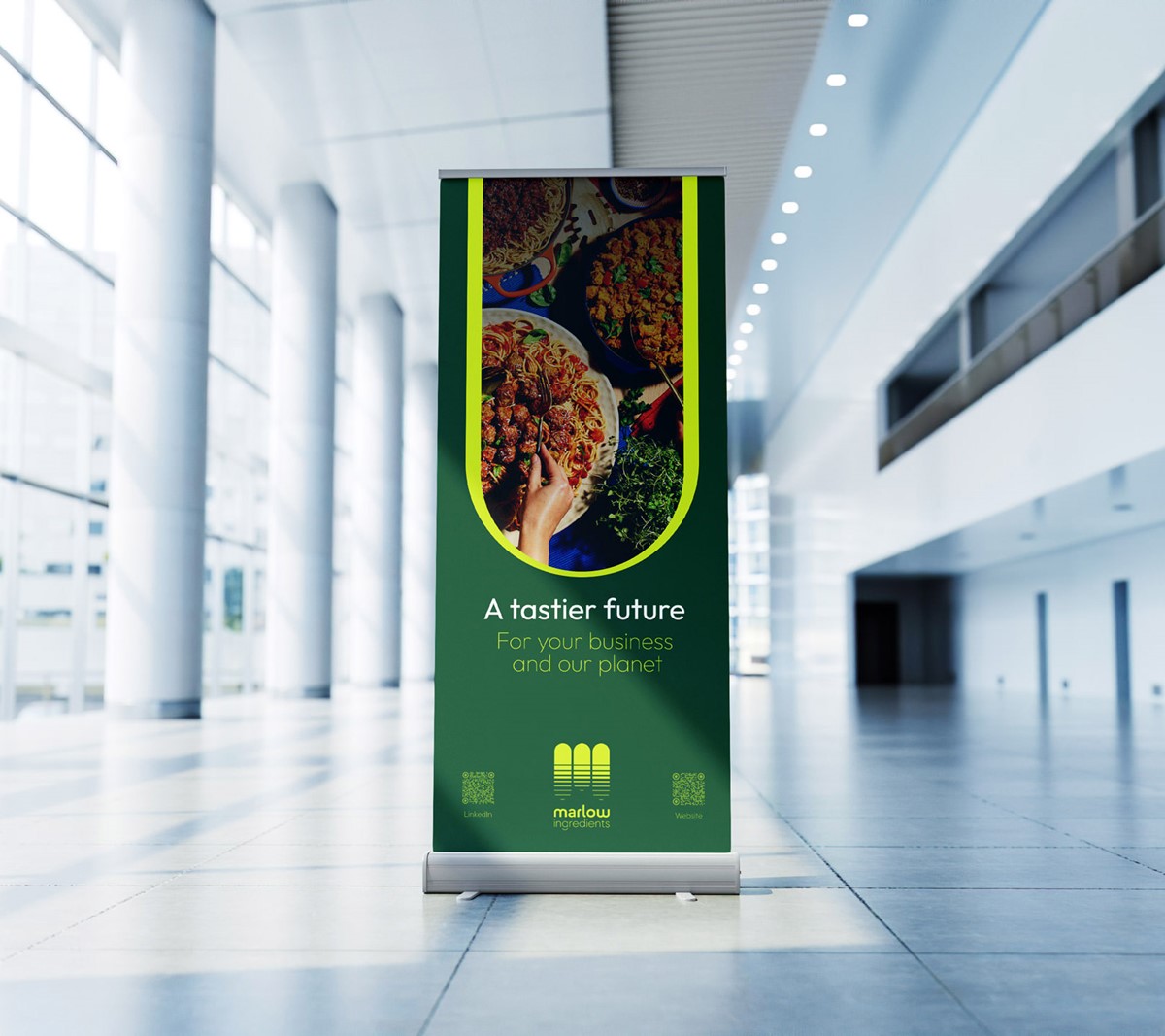
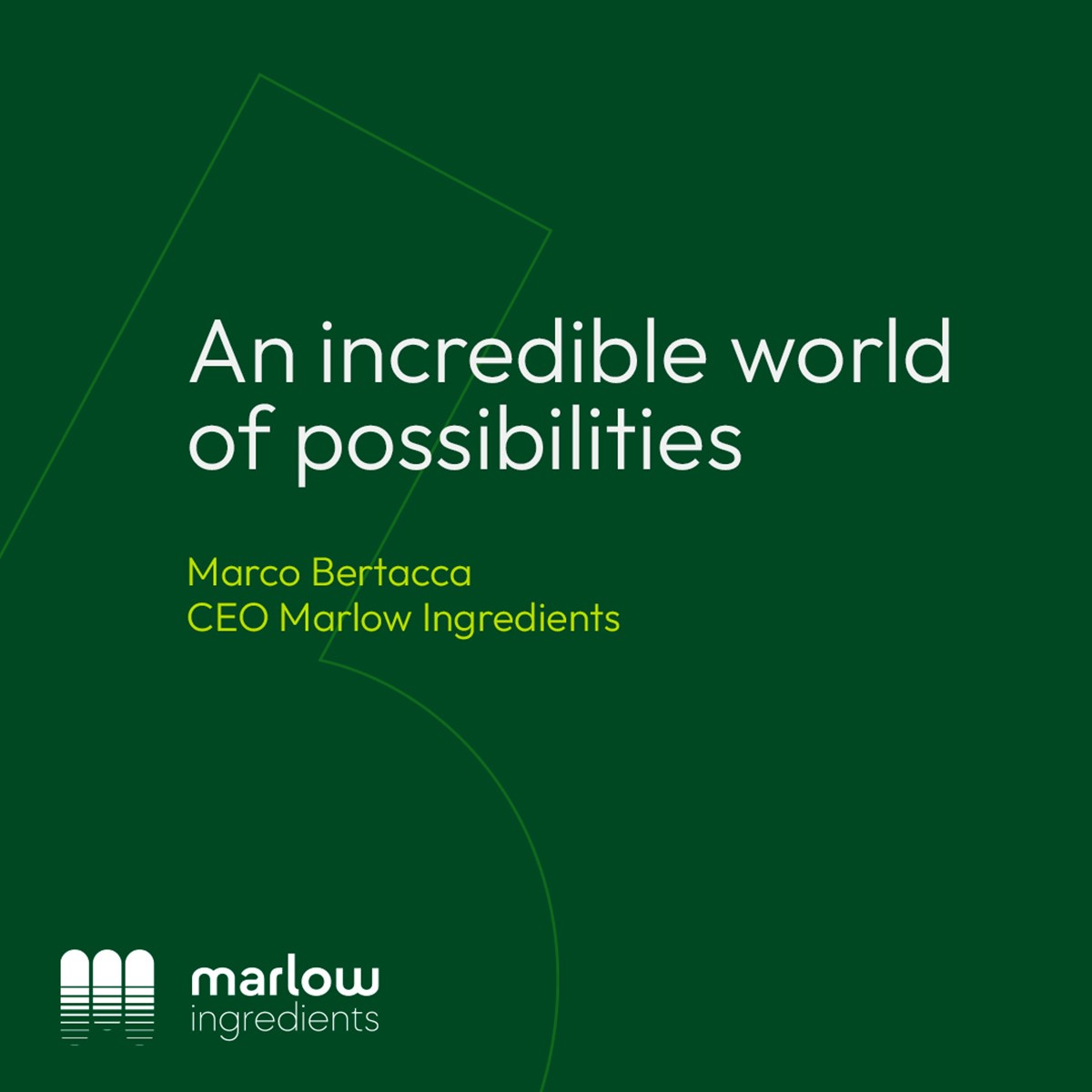
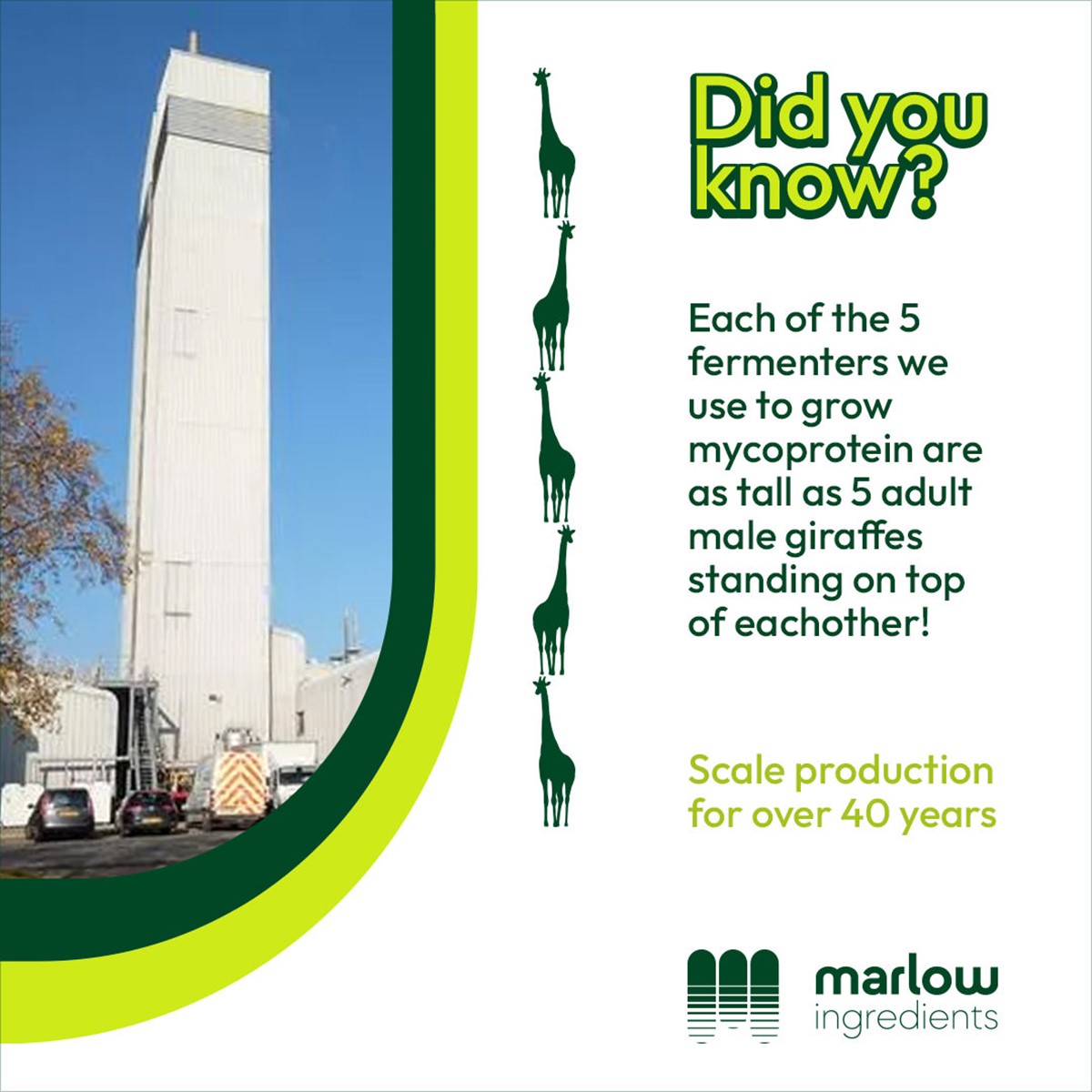

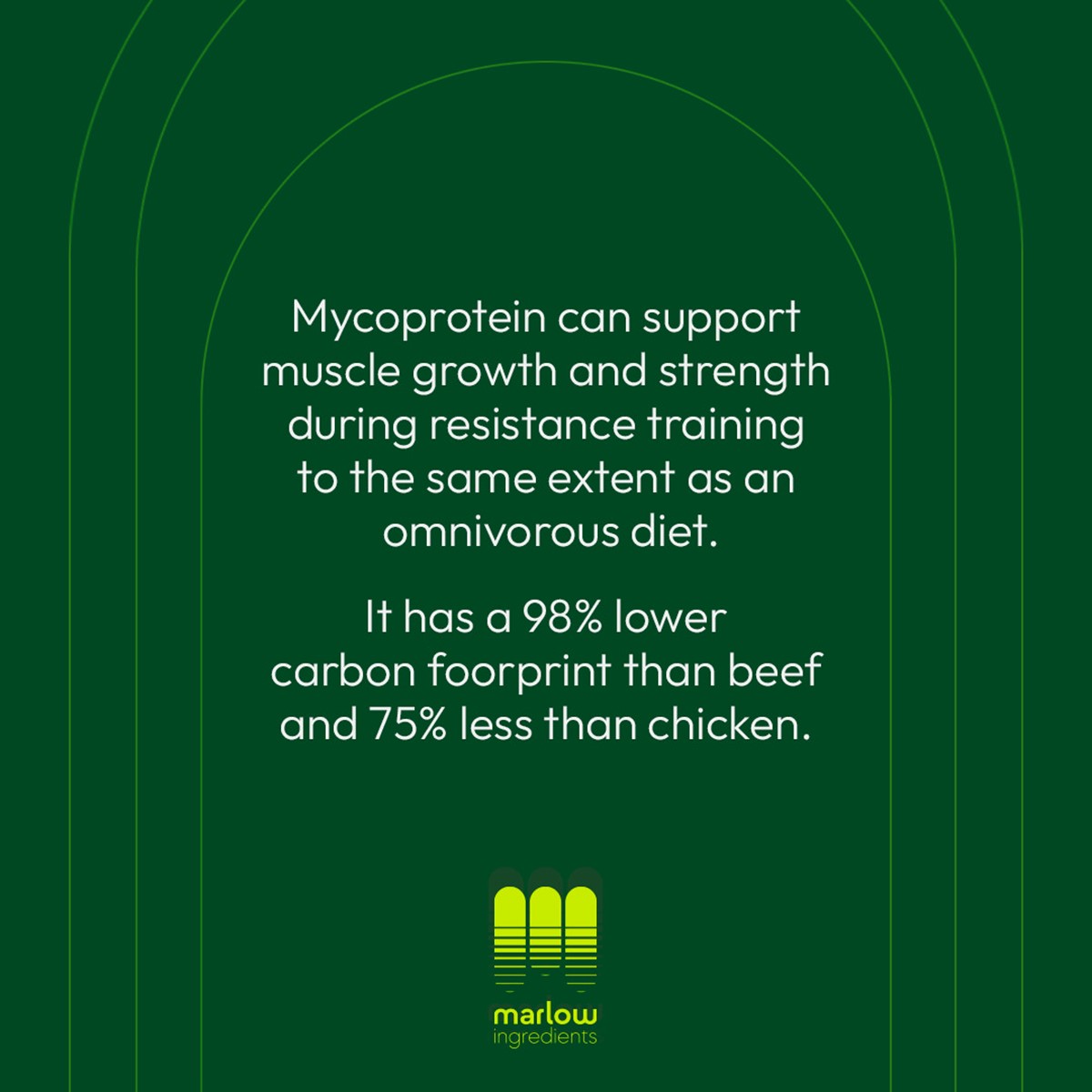
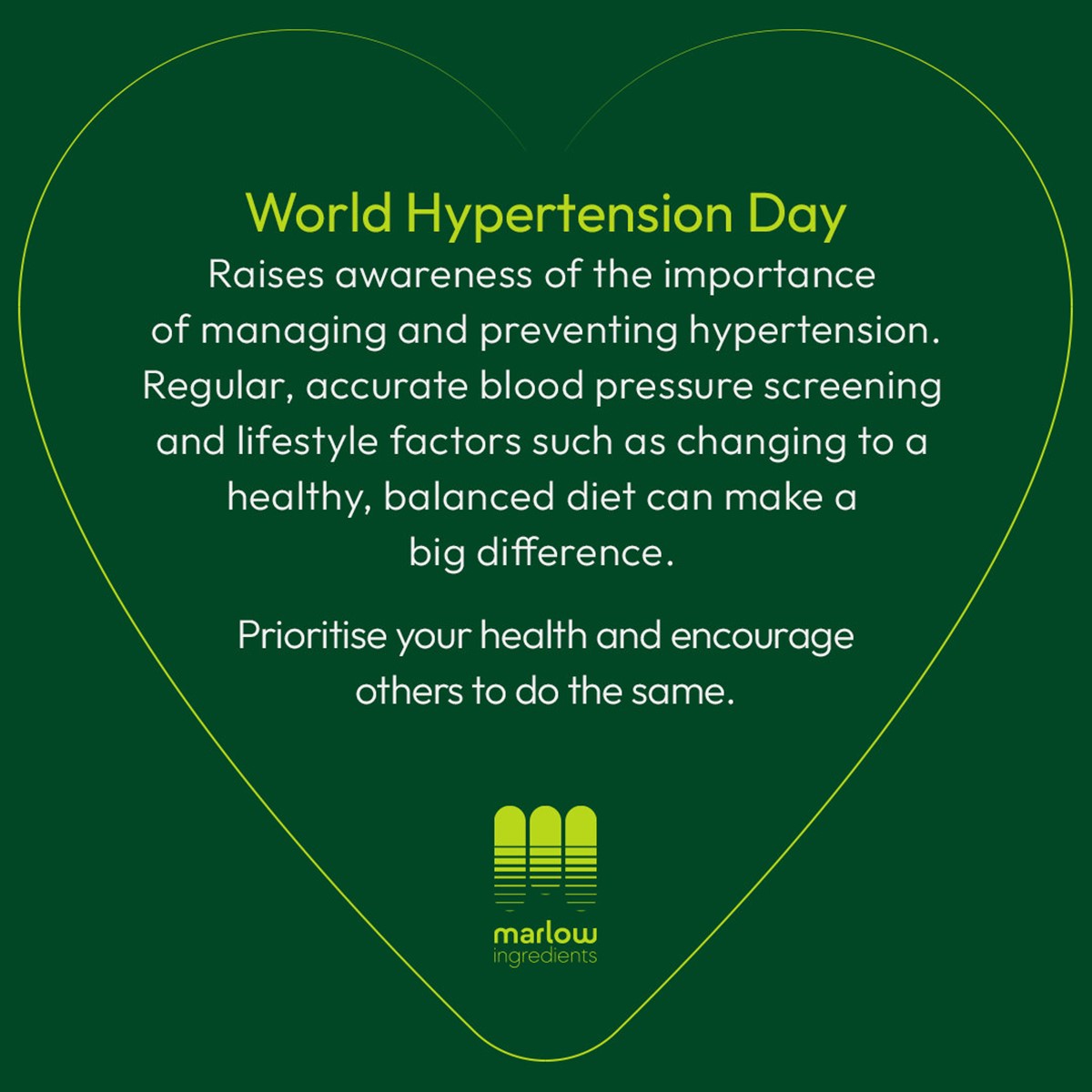
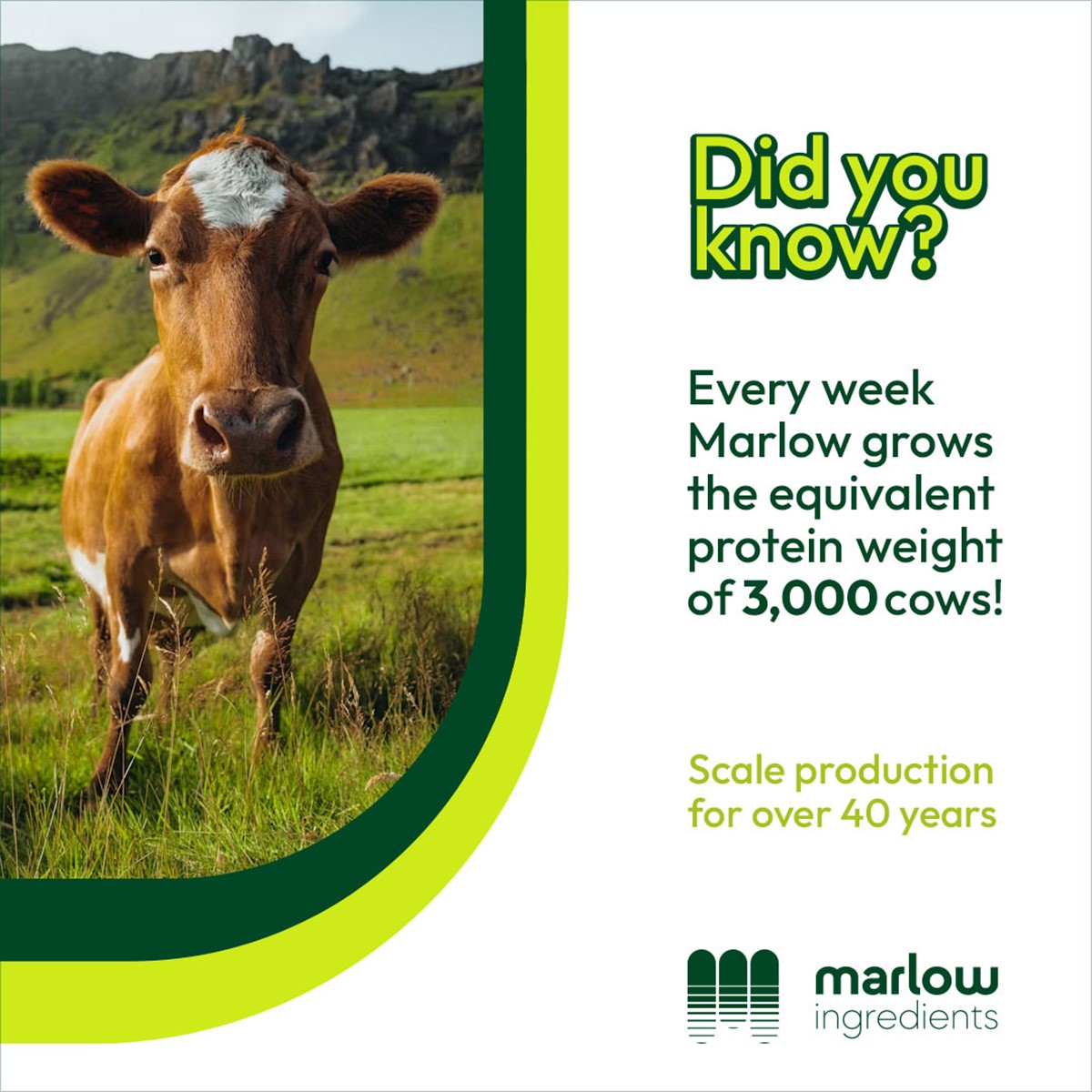
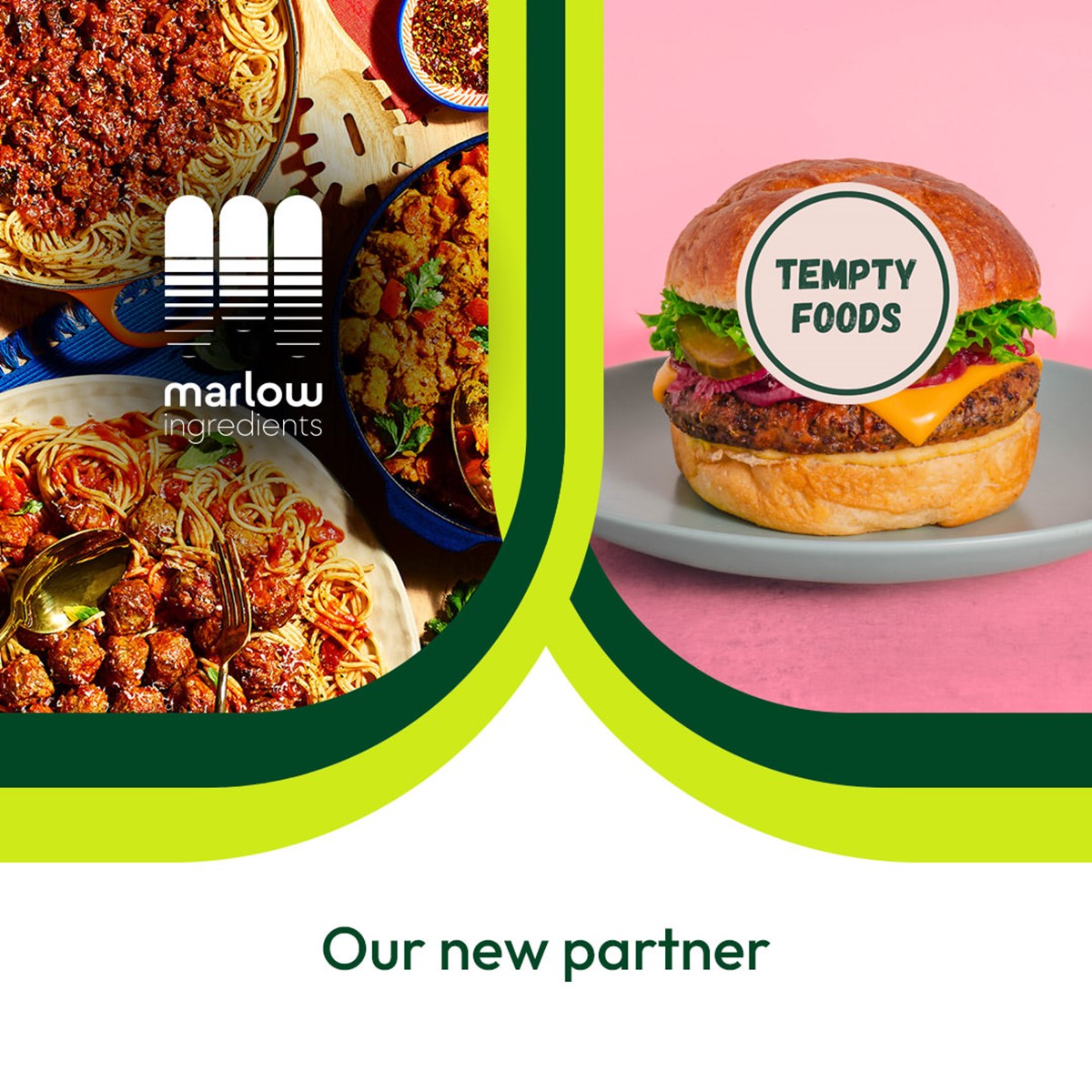
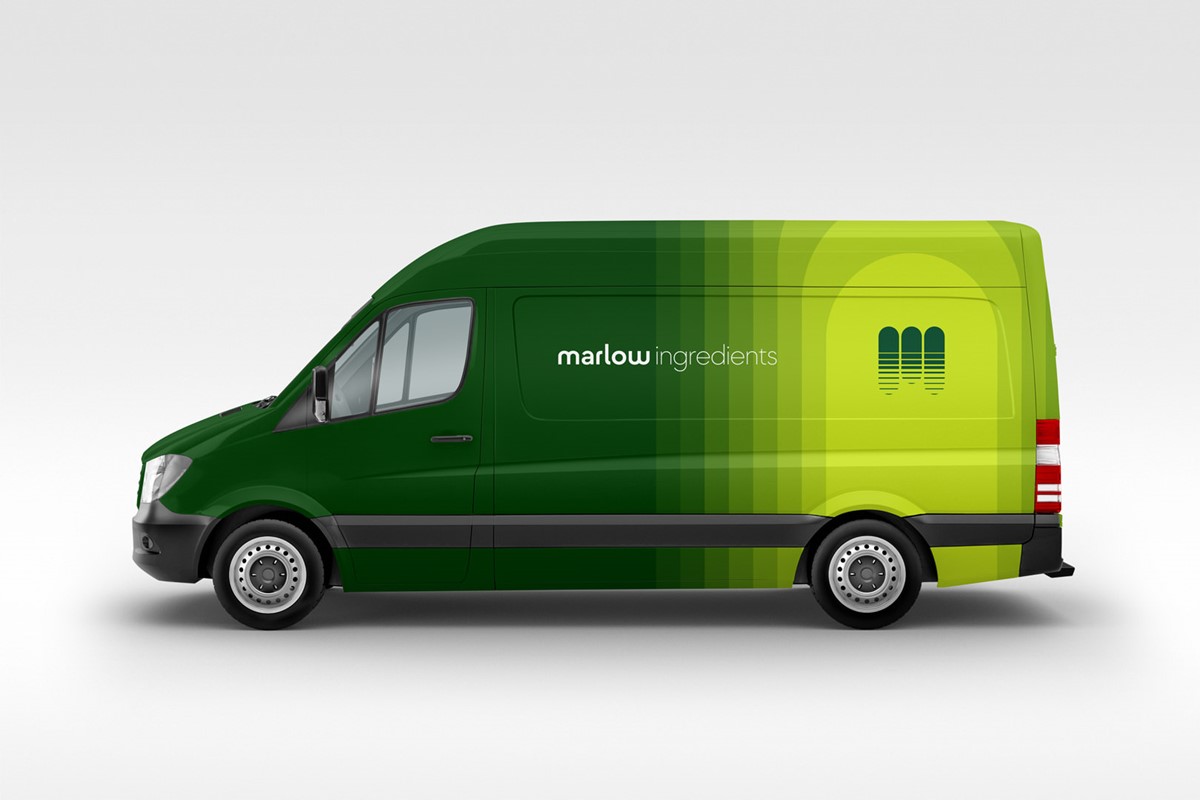

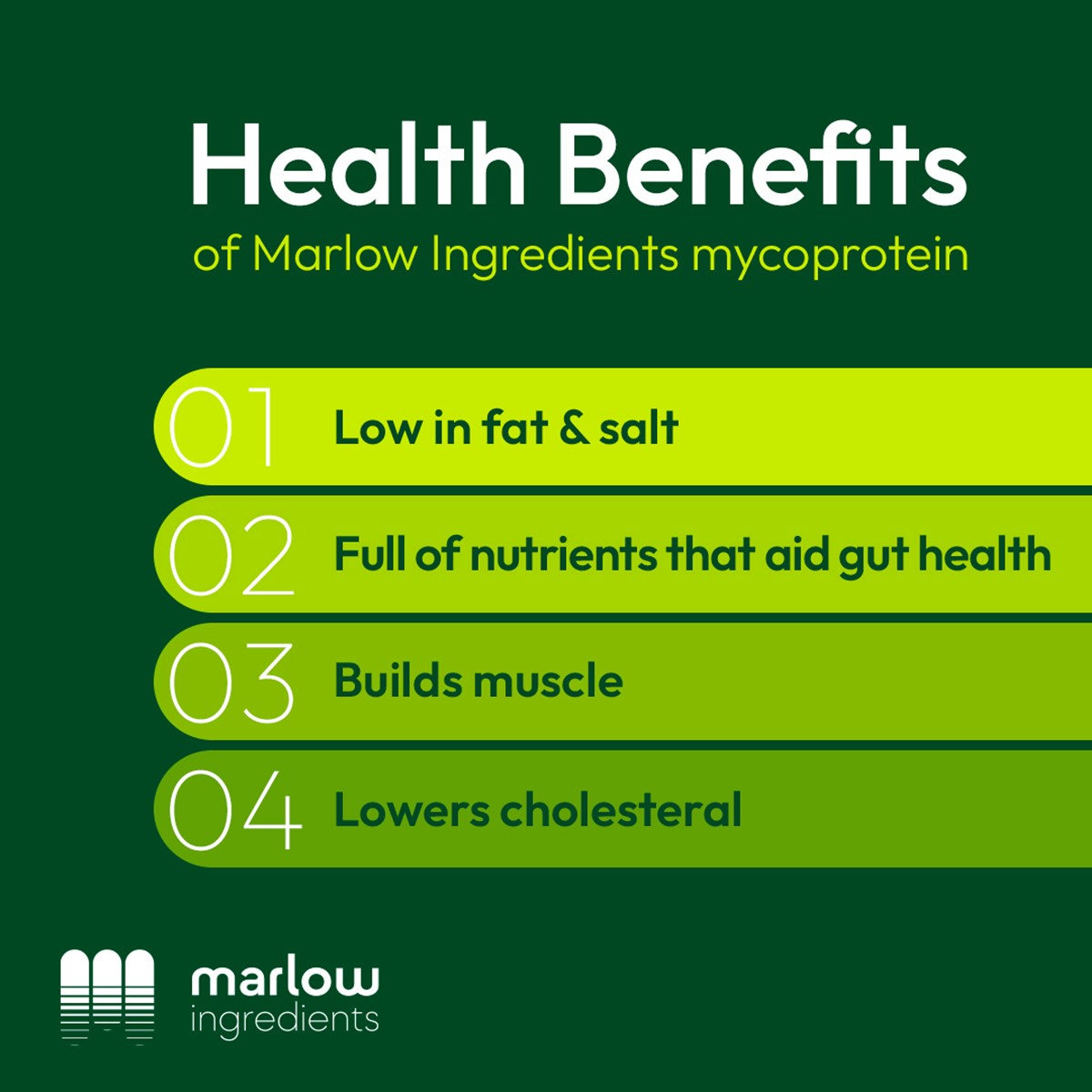
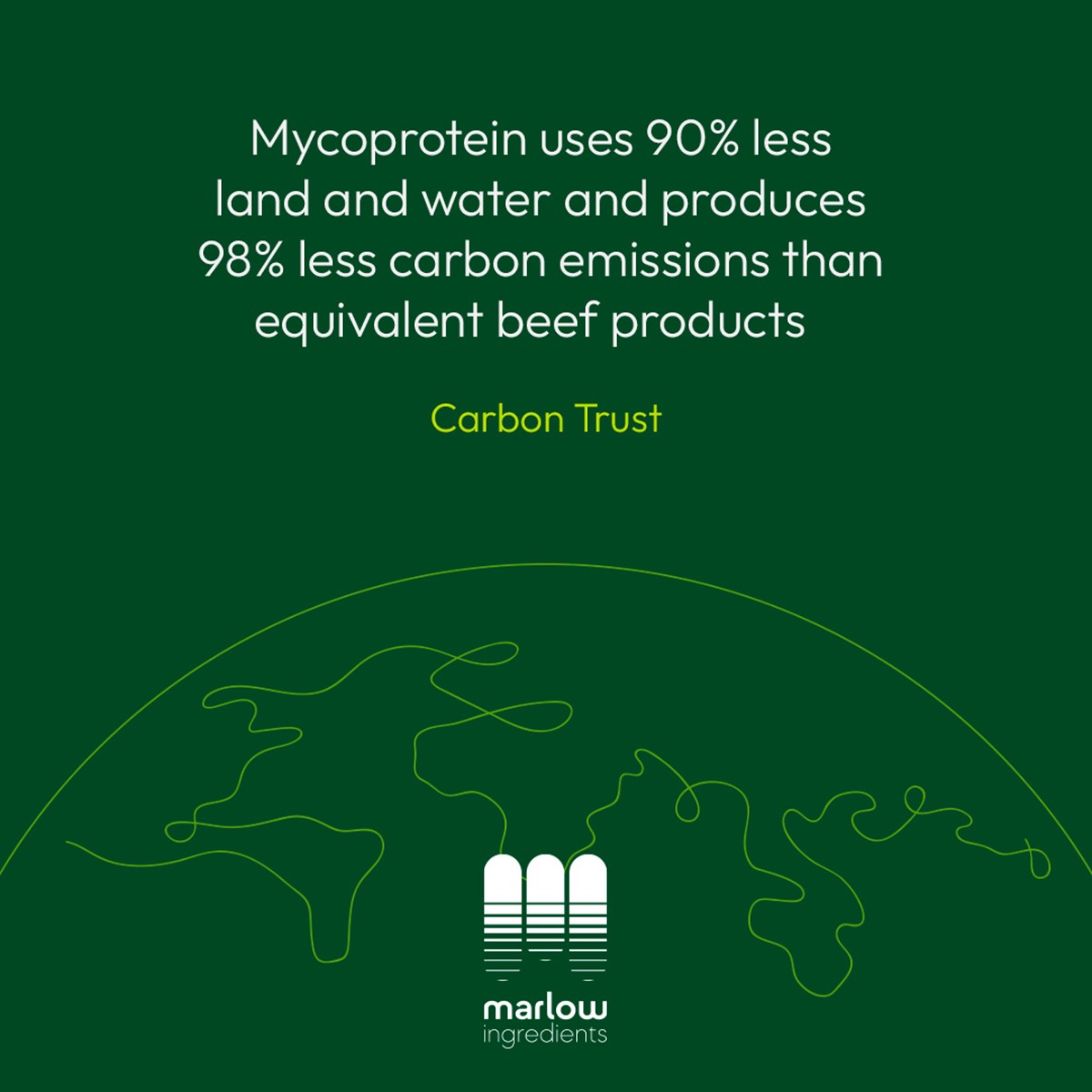
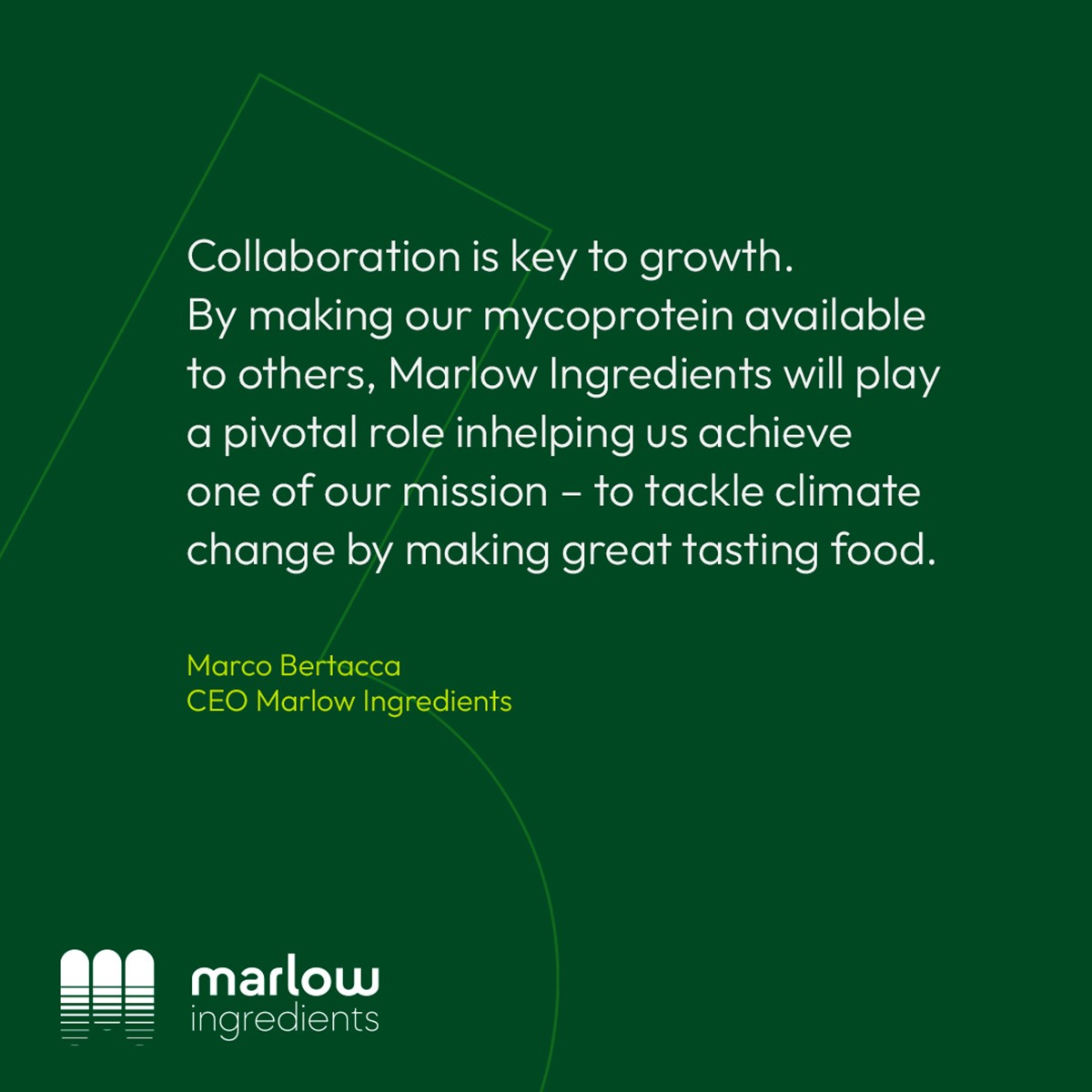
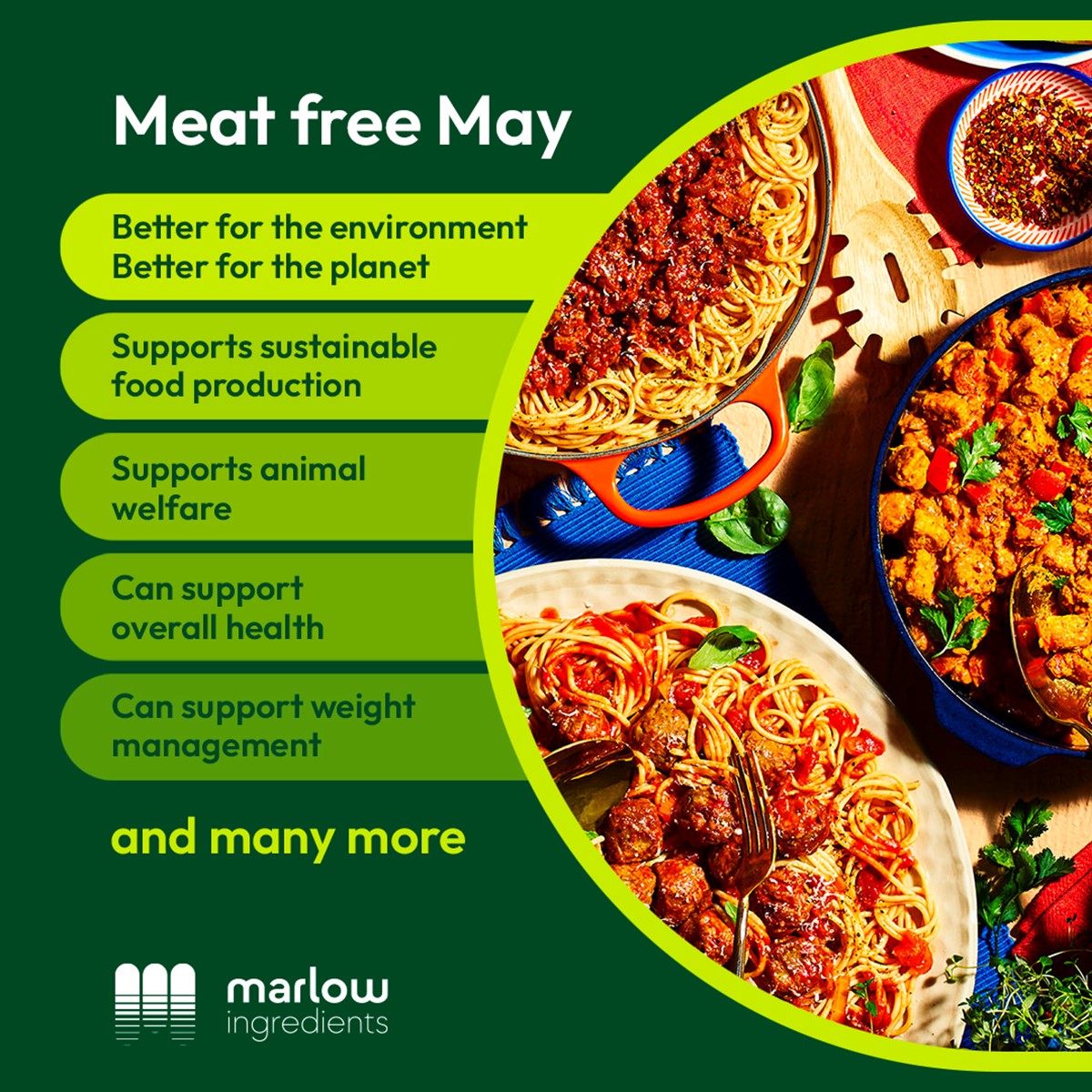


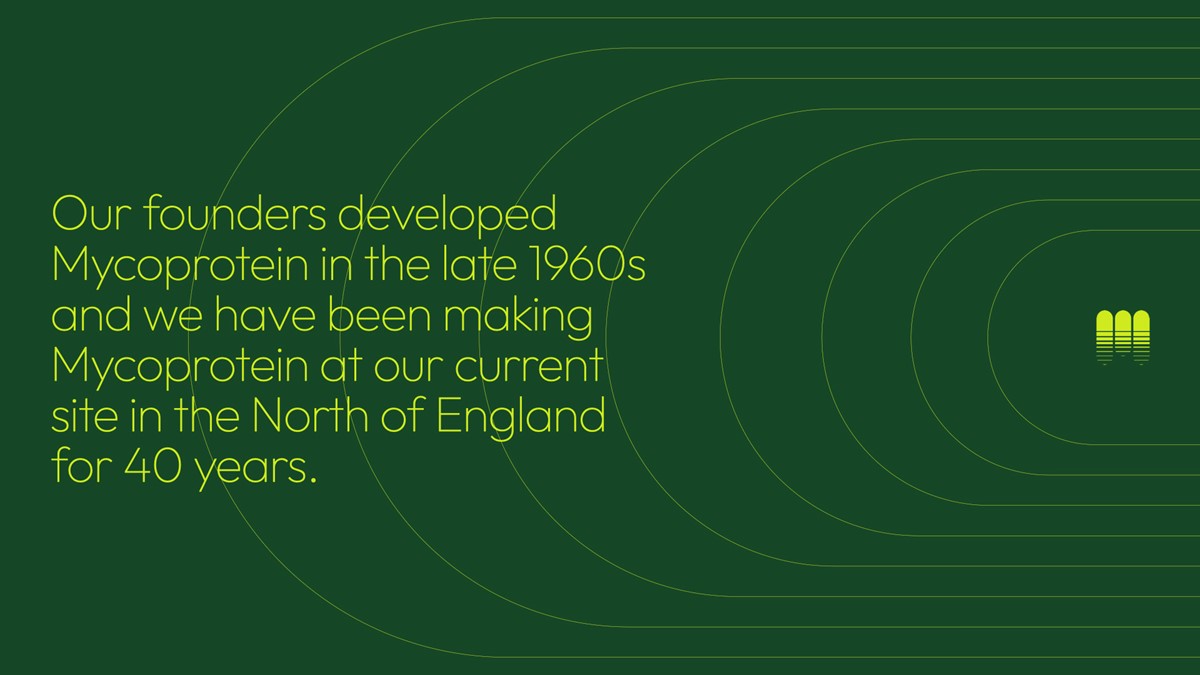
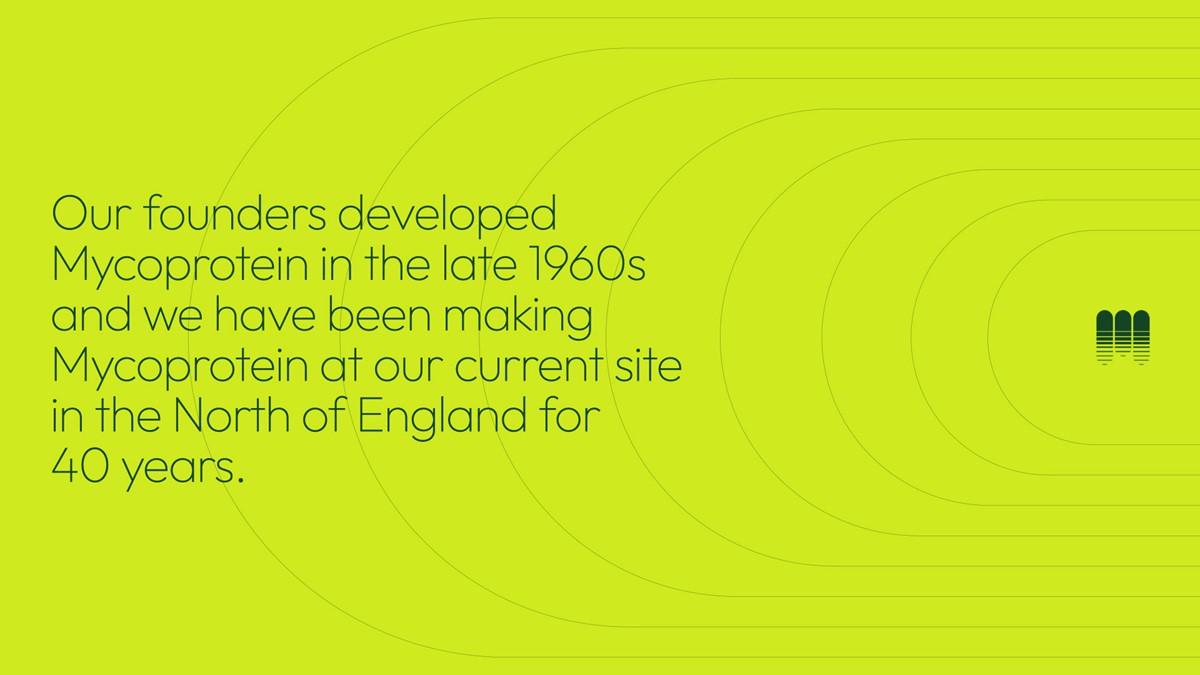
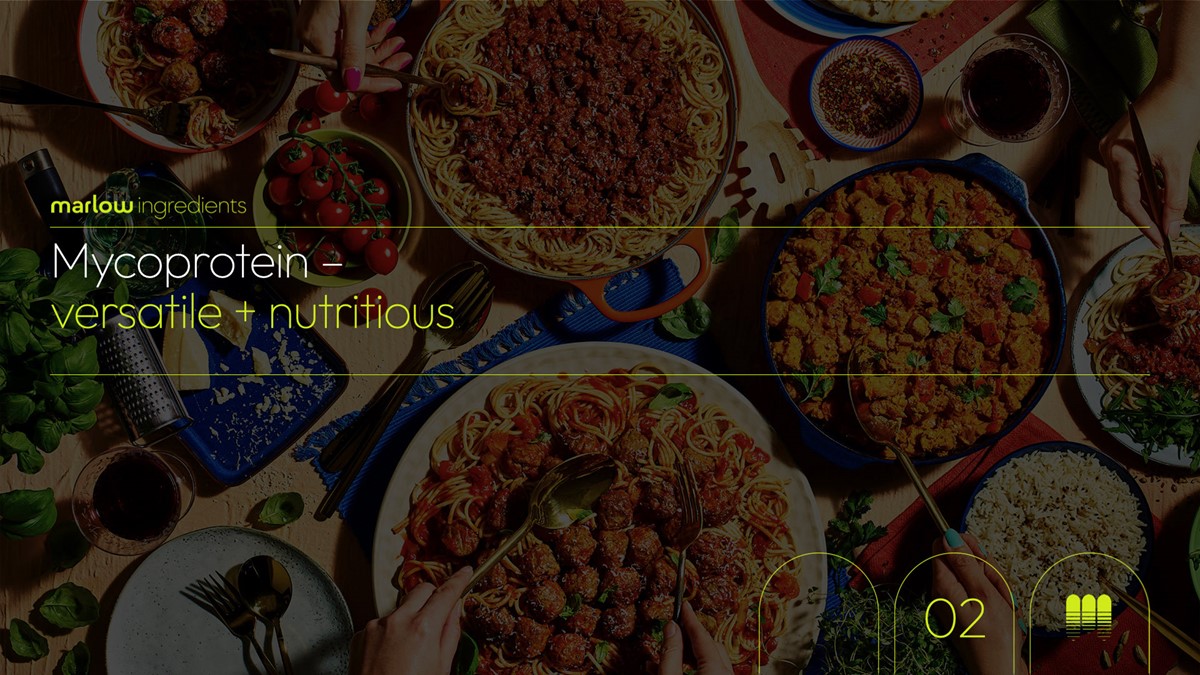
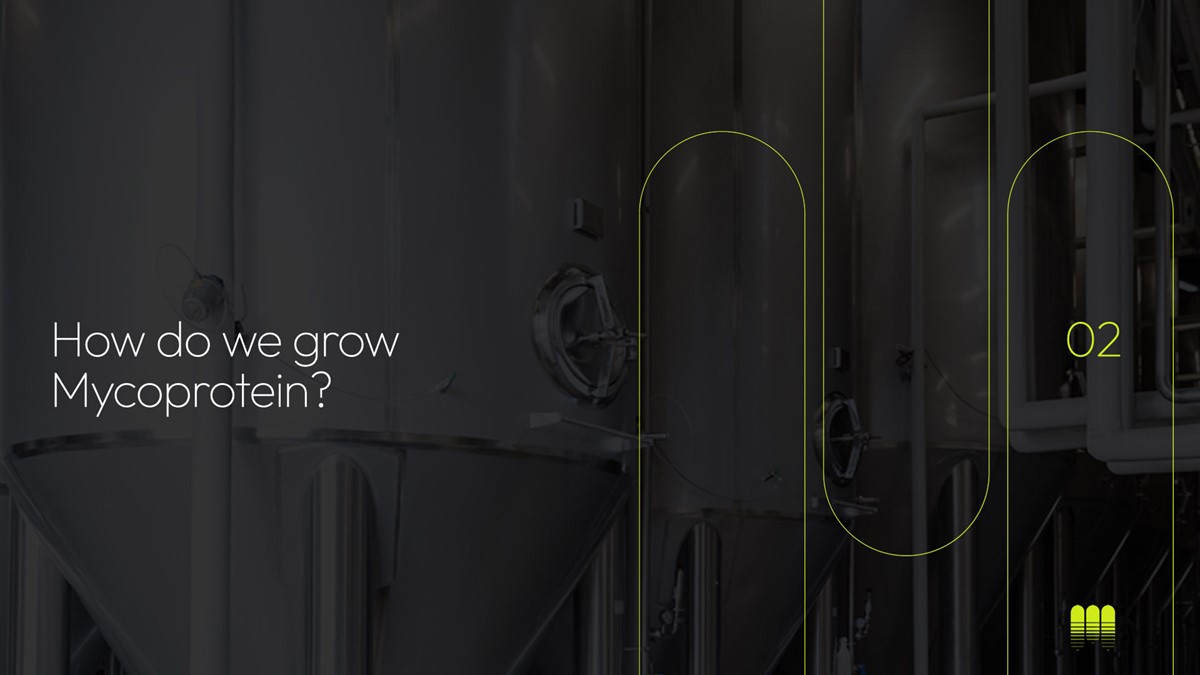
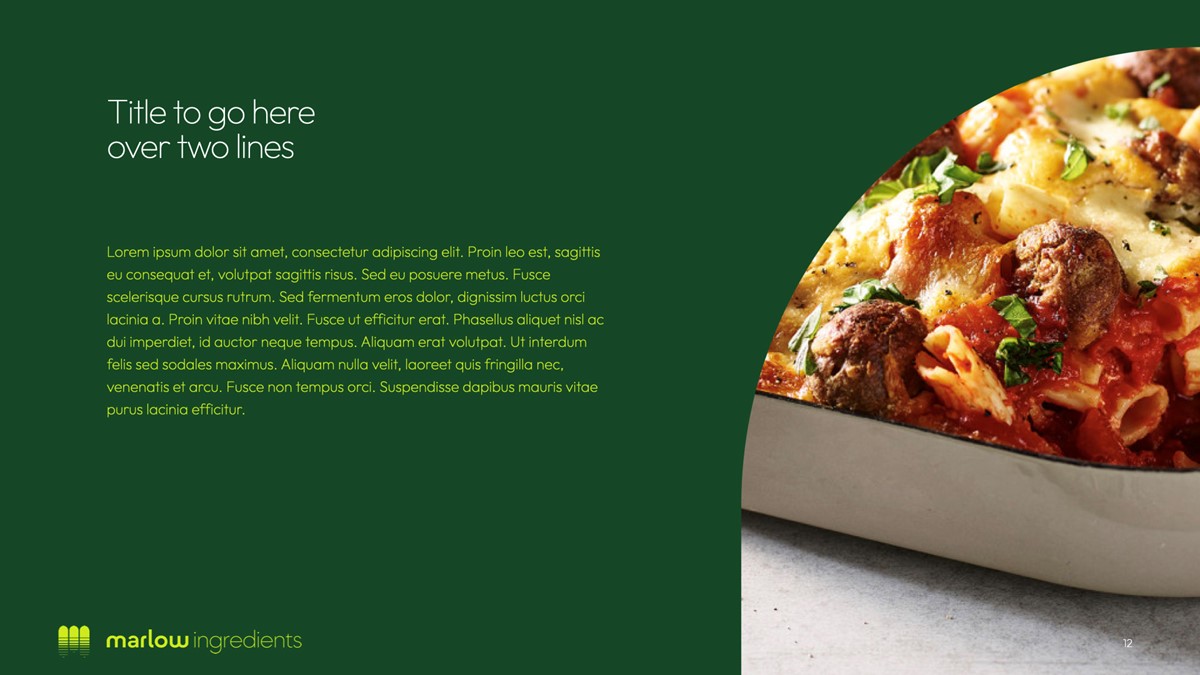
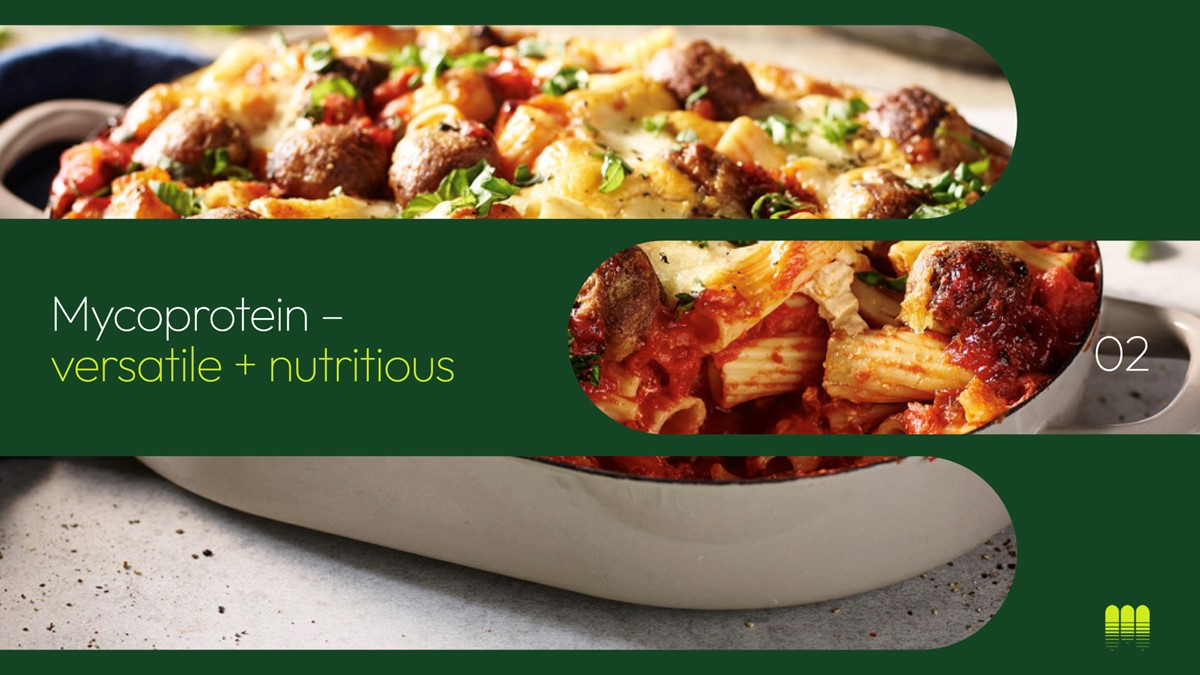
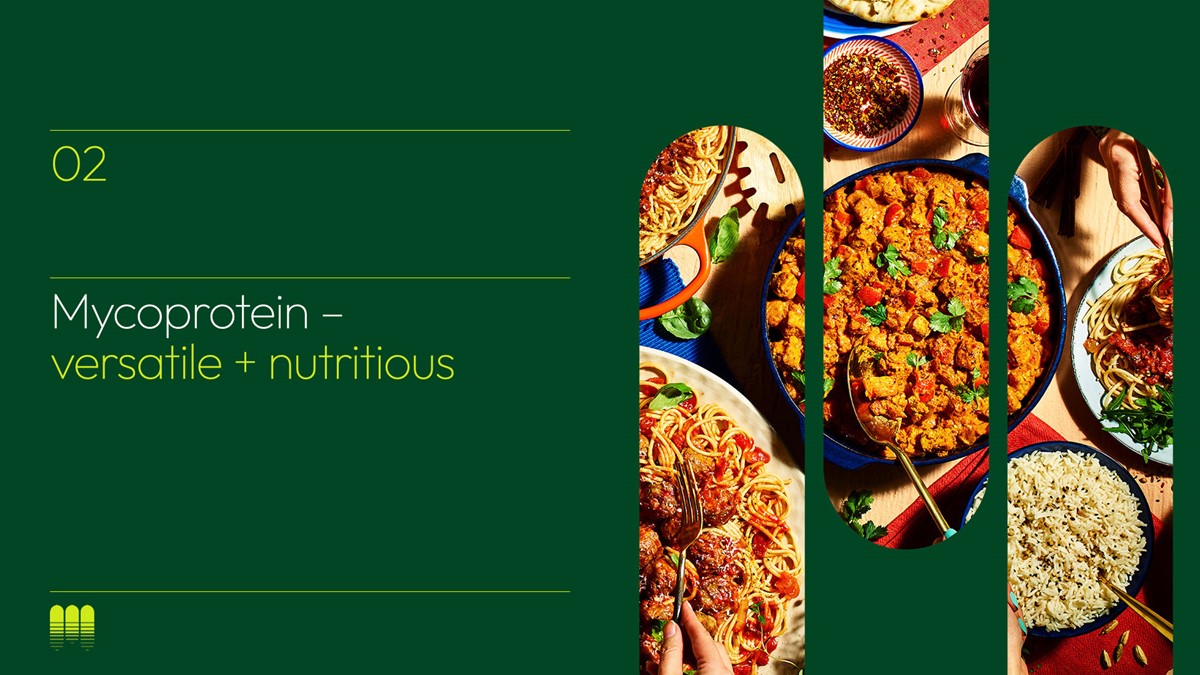
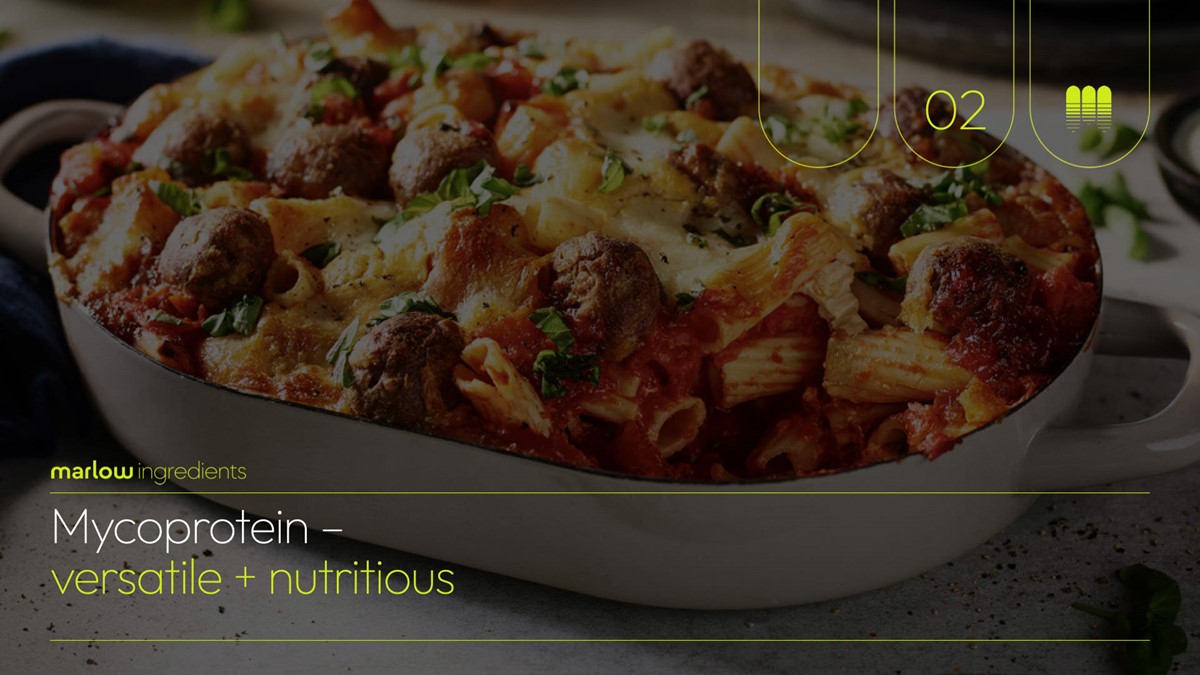



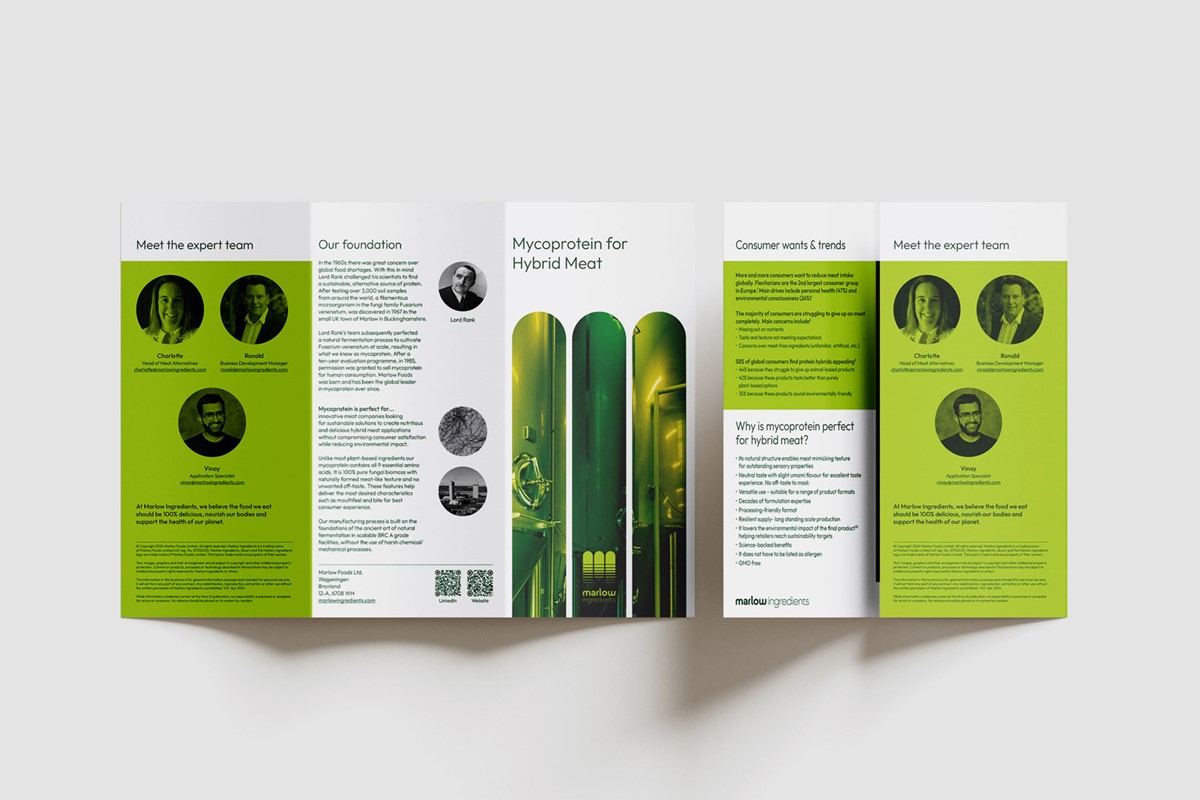


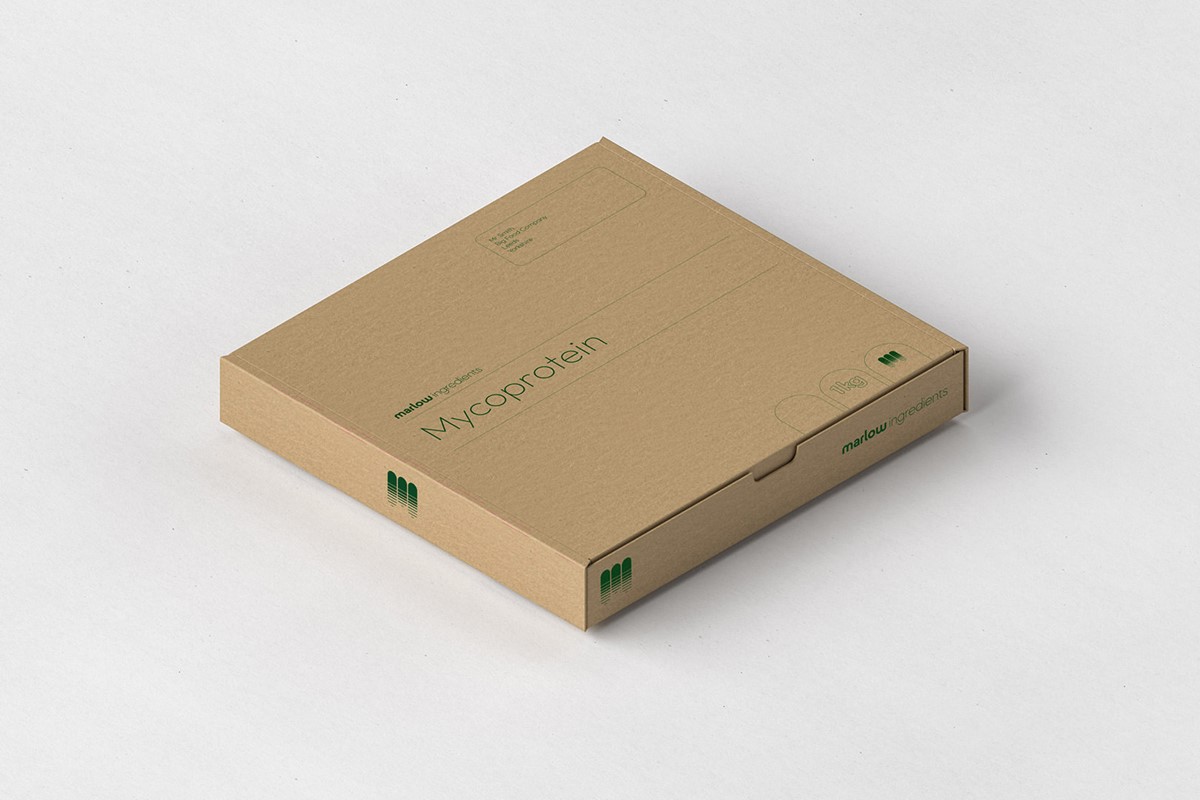

Marlow Ingredients Branding a new division for Quorn
In the 1960s there was great concern over global food shortages. With this in mind, Lord Rank of Rank Hovis McDougall challenged his scientists to find a sustainable, alternative source of protein. After testing over 3,000 soil samples from around the world a filamentous microorganism in the fungi family Fusarium venenatum, was discovered in 1967 in the small town of Marlow in Buckinghamshire. They subsequently perfected a natural fermentation process to create mycoprotein. After a ten-year evaluation programme, in 1985, permission was granted to sell what we now know as Quorn for human consumption.
Today Quorn is the leading specialist in meat-free protein. They were looking to fully explore the potential of mycoprotein, so approached graphic design agency Superfried to develop their branding strategy for a new ingredient division.
Through continued research, the potential for mycoprotein as an ingredient is endless and far surpasses the food industry. Consequently, a new brand name would be required for the division to ensure all market sectors would be accessible. During a collaborative process with the client over 40 potential brand names were thoroughly tested. In a now crowded market obtaining a unique brand name is a daunting task. The focus was redirected to their USP – expertise, experience, and heritage. Therefore, the logical solution was to return to where it all started in Marlow. With the new division renamed Marlow Ingredients, the development of the brand identity could begin.
To ensure versatility, all associations with food were avoided. Instead, I looked at the natural process by which they grow mycoprotein. This occurs via fermentation in huge vertical cylinders, three of which could be represented diagrammatically to form an abstract M. This simple, creative solution connected to their brand name and their process whilst remaining accessible to any sector.
With the logo design in place, attention was directed to the logotype. Although food security and the requirement for sustainable materials is a serious concern, it is also important to remain positive, approachable and avoid scare tactics. Consequently, the design strategy was to use lowercase characters for the logotype. In keeping with the marque, circular-based letterforms were developed.
For brand application, the rounded cylinders provided a versatile graphic device. The lozenge could be employed as a pattern, container or mask to style and organise branded content. For typography, as a B2B operation practicality was key. It was essential that the typeface could be accessed globally by all staff. To achieve this a practical, freely available geometric sans – Outfit – was selected.
Although commonly used within the sustainable sector, green was the most practical option for global use. A strong, dark shade was selected as a base. As a highlight, vibrant lime was adopted to ensure graphical communications could take either a conservative or high-impact creative direction as required. With the building blocks in place, brand assets were designed and tested to ensure the brand identity was robust across all mediums.
Since completion, Marlow have secured their first partners and are in active discussions with other potential customers across many countries in Europe. Mycoprotein is well placed to win in the meat and dairy alternative sectors and the team is excited to see how mycoprotein can solve challenges in categories beyond these. This is an area they are actively exploring as they continue to work with Superfried to develop their brand, as the food industry changes to reflect consumer needs and ingredient availability.
Please note, Superfried were not involved in Marlow’s temporary web presence. A new website is currently in development.
Project services
- Branding
- Brand Strategy
- Bespoke Typography
- Graphic Design
- Marketing
- Animation
- Naming
Testimonials . Press . Awards
Since launching the new brand identity Marlow has secured a partnership with Tempty Foods in Denmark.
"The introduction of Marlow mycoprotein into our products will give us a sustainable and competitive edge. It will also empower us to continue creating next-generation alternatives that focus on the key values of taste and nutrition, rather than imitating meat."
—
Martina Lokajová . CEO + Co-founder of Tempty Foods
—
In addition to this Marlow is in active discussions with other potential customers across many countries throughout the EU.